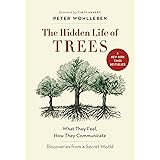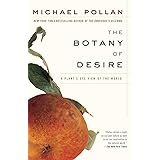
Enjoy fast, free delivery, exclusive deals, and award-winning movies & TV shows with Prime
Try Prime
and start saving today with fast, free delivery
Amazon Prime includes:
Fast, FREE Delivery is available to Prime members. To join, select "Try Amazon Prime and start saving today with Fast, FREE Delivery" below the Add to Cart button.
Amazon Prime members enjoy:- Cardmembers earn 5% Back at Amazon.com with a Prime Credit Card.
- Unlimited Free Two-Day Delivery
- Streaming of thousands of movies and TV shows with limited ads on Prime Video.
- A Kindle book to borrow for free each month - with no due dates
- Listen to over 2 million songs and hundreds of playlists
- Unlimited photo storage with anywhere access
Important: Your credit card will NOT be charged when you start your free trial or if you cancel during the trial period. If you're happy with Amazon Prime, do nothing. At the end of the free trial, your membership will automatically upgrade to a monthly membership.
Buy new:
-22% $13.99$13.99
Ships from: Amazon.com Sold by: Amazon.com
Save with Used - Good
$12.88$12.88
Ships from: Amazon Sold by: Zoom Books Company

Download the free Kindle app and start reading Kindle books instantly on your smartphone, tablet, or computer - no Kindle device required.
Read instantly on your browser with Kindle for Web.
Using your mobile phone camera - scan the code below and download the Kindle app.

OK
What a Plant Knows: A Field Guide to the Senses: Updated and Expanded Edition Paperback – November 21, 2017
Purchase options and add-ons
Thoroughly updated from root to leaf, this revised edition of the groundbreaking What a Plant Knows includes new revelations for lovers of all that is vegetal and verdant.
Plants can hear―and taste things, too!
The renowned biologist Daniel Chamovitz builds on the original edition to present an intriguing look at how plants themselves experience the world―from the colors they see to the schedules they keep, and now, what they do in fact hear and how they are able to taste. A rare inside look at what life is really like for the grass we walk on, the flowers we sniff, and the trees we climb, What a Plant Knows offers a greater understanding of their place in nature.
- Print length224 pages
- LanguageEnglish
- PublisherScientific American / Farrar, Straus and Giroux
- Publication dateNovember 21, 2017
- Dimensions5.45 x 1 x 8.25 inches
- ISBN-100374537127
- ISBN-13978-0374537128
Frequently bought together

Similar items that may ship from close to you
Editorial Reviews
Review
“Of the dozens of books I read in 2012, several stand out. But there's one I keep coming back to, thumbing through it, letting people know about it. It's Daniel Chamovitz's What A Plant Knows: A Field Guide to the Senses.” ―Chicago Tribune
“The reader...will find enough absorbing science to concede that plants continue to inspire and amaze us. It's time, as Joni Mitchell sang at Woodstock, 'to get ourselves back to the garden' and take a closer look at plants.” ―The Wall Street Journal
“This elegantly written account of plant biology will change the way you see your garden...Chamovitz lets us see plants in a new light, one which reveals their true wonder.” ―The Guardian
“Thick with eccentric plant experiments and astonishing plant science.” ―Sunday Times (UK)
“Plants may be brainless, eyeless and devoid of senses as we know them, but they have a rudimentary 'awareness', says biologist Daniel Chamovitz. In this beautiful reframing of the botanical, he reveals the extent and kind of that awareness through a bumper crop of research.” ―Nature
“For everyone who has wondered at Mimosa, the suddenly snapping Venus flytrap or the way a sunflower's head unerringly turns to follow the sun, Daniel Chamovitz has written the perfect book.” ―American Scientist
“[A] fascinating inside look at what a plant's life is like, and a new lens on our own place in nature.” ―Maria Popova, Brain Pickings
“Verdict: Plant-astic.” ―Herald Sun (Australia)
“This well-researched book makes the compelling argument that plants "know" a lot more than most people give them credit for . . . Chamovitz eloquently elucidates that scientific evidence that proves it in easy-to-understand terms.” ―The American Gardener
“Chamovitz's book is pop science at its best, full of vivid examples of barely imaginable ways of living” ―BBC Wildlife
“In a lively and delightful discourse that aligns botany with human biology, [Chamovitz] articulates his findings, about plants and the senses in accessible, often whimsical observations that make complex science not only comprehensible but fun to ponder.” ―Booklist
“[A] handy guide to our own senses as well as those of plants.” ―Audubon
“An intriguing and scientific--but easy to read--look at how plants experience life.” ―Gardens Illustrated
“[Chamovitz] gently hints that we should have a greater appreciation of plants' complexity and perceptiveness . . . If plants can see, smell, feel, know where they are, and remember, then perhaps they do possess some kind of intelligence. Maybe that is worth reflecting on the next time you casually stroll past a plant.” ―Chelsie Eller, Science
“Like us, a plant that aspires to win the rat race must exploit its environment. Even a daffodil can detect when you're standing in its light, and a rhododendron knows when you're savaging its neighbor with the pruning shears. With deftness and clarity, Daniel Chamovitz introduces plants' equivalent of our senses, plus floral forms of memory and orientation. When you realize how much plants know, you may think twice before you bite them.” ―Hannah Holmes, author of Quirk and Suburban Safari
“Just as his groundbreaking research uncovered connections between the plant- and animal kingdoms, Daniel Chamovitz's insights in What a Plant Knows transcend the world of plants. This entertaining and educational book is filled with wondrous examples that underscore how the legacy of shared genomes enables plants and animals to respond to their environments. You'll see plants in a new light after reading What a Plant Knows.” ―Gloria M. Coruzzi, Carroll and Milton Petrie Professor, Center for Genomics and Systems Biology, New York University
“If you've ever marveled at how and why plants make the choices they do, What a Plant Knows holds your answer. Chamovitz is a master at translating the science of botany into the language of the layman.” ―Michael Malice, author, subject of Ego & Hubris, and succulent enthusiast
“Chamovitz walks the Homo sapiens reader right into the shoes--or I should say roots--of the plant world. After reading this book you will never again walk innocently past a plant or reach insensitively for a leaf. You will marvel and be haunted by a plant's sensory attributes and the shared genes between the plant and animals kingdoms.” ―Elisabeth Tova Bailey, author of The Sound of a Wild Snail Eating
“What a Plant Knows is lively, eloquent, scientifically accurate, and easy to read. I commend this engaging text to all who wonder about life on earth and seek a compelling introduction to the lives of plants as revealed through centuries of careful scientific experimentation.” ―Professor Stephen D. Hopper, Director, Royal Botanic Gardens, Kew
“A fascinating book that explores accessibly the evidence that plants share more properties with animals than most people appreciate. It may come as a relief to vegetarians to learn that plants do not feel pain or suffer, in the human sense, when harvested. Nevertheless, after reading What a Plant Knows, we wanted to apologize to our daffodils for the times when our shadows have shielded them from the Sun.” ―John and Mary Gribbin, authors of The Flower Hunters
“By comparing human senses to the abilities of plants to adapt to their surroundings, the author provides a fascinating and logical explanation of how plants survive despite the inability to move from one site to another. Backed by new research on plant biology, this is an intriguing look at a plant's consciousness.” ―Kirkus
About the Author
Product details
- Publisher : Scientific American / Farrar, Straus and Giroux; Updated,Expanded edition (November 21, 2017)
- Language : English
- Paperback : 224 pages
- ISBN-10 : 0374537127
- ISBN-13 : 978-0374537128
- Item Weight : 2.31 pounds
- Dimensions : 5.45 x 1 x 8.25 inches
- Best Sellers Rank: #186,320 in Books (See Top 100 in Books)
- #122 in Trees in Biological Sciences
- #153 in Natural History (Books)
- #193 in Botany (Books)
- Customer Reviews:
About the author

Discover more of the author’s books, see similar authors, read author blogs and more
Customer reviews
Customer Reviews, including Product Star Ratings help customers to learn more about the product and decide whether it is the right product for them.
To calculate the overall star rating and percentage breakdown by star, we don’t use a simple average. Instead, our system considers things like how recent a review is and if the reviewer bought the item on Amazon. It also analyzed reviews to verify trustworthiness.
Learn more how customers reviews work on AmazonReviews with images
-
Top reviews
Top reviews from the United States
There was a problem filtering reviews right now. Please try again later.
This is not a dry and dusty tome. Though the phrase "I read it in a single sitting" more commonly applies to fictional thrillers (e.g. The DaVinci Code), it's applicable occasionally in science writing, and it's applicable to What a Plant Knows. Chamovitz, is a natural born teacher. When the reader wants to know "How the heck does a plant know which way is up, and which way is down?", Chamovitz refuses to plop the final answer out in one paragraph, instead, teasing the reader along the actual historical pathway that elucidates what we now know. And in so doing, he brings the full beauty of any given aspect of plant biology into focus, but ALSO brings to light the beauty and power of science that is well done; science done by people with a careful but insatiable need to know; science done by people whose need to be accurate exceeds their desire to prove their own theory right.
Chamovitz has the startling belief that the unvarnished truth is more fascinating than hyperbole, and hence What a Plant Knows is completely absent the hype and goofiness of The Secret Lives of Plants. You won't, after reading this book, find yourself crooning your favorite songs to your tomato plants (plants, Chamovitz convincingly demonstrates, really are deaf). But despite the fact that Chamovitz eschews sensationalism, what he says about the sensory life of plants, and what a plant can "know" and "remember" (the author very carefully defines what he means by those terms) is indeed both fascinating and sensational.
The book is just plain fun. Besides getting to learn terrific words like statoliths (essential for a plant to know which way is up, which is down), Chamovitz ups the relevancy factor multiple notches by linking the knowledge he presents to the reader with real life applications. He, for example, lets us know just how it is that flower growers get boat loads of chrysanthemums to bloom just in time for Mother's Day. Growers of Northern California's inhalable cash crop use this knowledge in what they call their "light dep" (light deprivation) season.
Plants, front and center, are the rock stars of this fascinating book. But also in starring roles are the folks that quietly, carefully, and with determination, track down the truth about the way our world works: scientists. They look good in this book. And so does science. Chamovitz's gentle, firm, funny, exploration of what tricks that plants have up their sheaves is full of integrity and passion. Treat yourself to it.
Starting with Darwin's contribution to the study of plants (it is amazing how much a single man has contributed to the field of evolutionary biology), Daniel looks at the different `senses' from a plant's point of view, the role of the various genes and how they have evolved to create the huge diversity in the plant kingdom that we see today. The best thing about the book is the way Daniel defines the fundamentals of each `sense', how we humans use that sense and how it differs when it comes to the realm of plants.
Maybe not as eloquent as Richard Dawkins or as technically deep as Nick Lane, Daniel Chamovitz brings a different style of science writing that I found fascinating. Explaining the concepts in a very clear and simple manner, while not dumbing it down, Dainiel has done a remarkable job. Though the book is on plants, I found its coverage of genomics (from the basics to the complex) one of the best that I have seen. (Never seen a better one line definition of `Epigenetics').
We take plants for granted and see them basically as food for us. Though we acknowledge their greenery, beauty and other contributions to making earth a habitable place, we still never take them as seriously as we would consider animals or birds. However any one who reads this book will start looking at plants differently. From the carnivorous venus fly trap to the stately oak tree, we will start admiring the innovations that our cousins have come up with using the same genetic code that we share with them.
Don't miss this book - it will enhance your senses!
Top reviews from other countries
Je recommande sans réserves aux amoureux de plantes et de nature !













